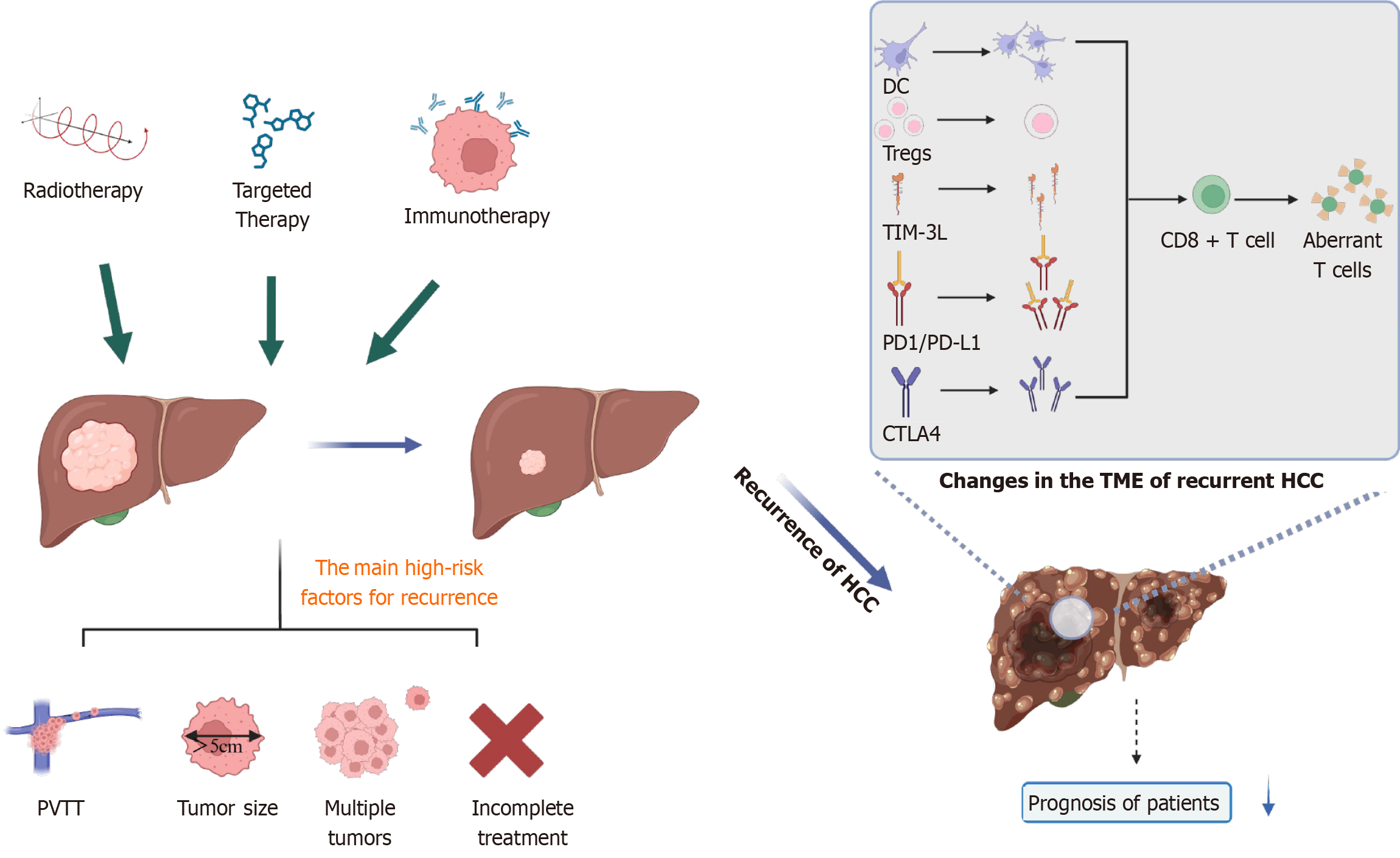©The Author(s) 2025.
World J Gastrointest Oncol. Jul 15, 2025; 17(7): 107815
Published online Jul 15, 2025. doi: 10.4251/wjgo.v17.i7.107815
Published online Jul 15, 2025. doi: 10.4251/wjgo.v17.i7.107815
Figure 1 Treatment and high-risk factors for hepatocellular carcinoma recurrence and changes in the tumor microenvironment.
Radiotherapy, targeted therapy and immunotherapy have played significant roles in the treatment of hepatocellular carcinoma (HCC) recurrence. However, portal vein tumor thrombus, large tumor size, multiple tumors and incomplete treatment can significantly increase the risk of HCC recurrence. In the immune microenvironment of recurrent liver cancer, there are many changes. There is an increase in immune checkpoint expressions [e.g., programmed cell death protein 1/programmed cell death ligand 1, T-cell immunoglobulin and mucin domain-containing molecule 3 (TIM-3)/TIM-3 L, cytotoxic T-lymphocyte-associated protein-4], a rise in the proportion of dendritic cells, and a decrease in the proportion of regulatory T-cells. Although the proportion of T cells remains elevated, these T cells become exhausted T cells, exhibited an innate-like phenotype with low cytotoxicity and clonal expansion. PVTT: Portal vein tumor thrombus; HCC: Hepatocellular carcinoma; TME: Tumor microenvironment; DC: Dendritic cell; Tregs: Regulatory T-cells; TIM: T-cell immunoglobulin and mucin domain-containing molecule; PD-1: Programmed cell death protein 1; PD-L1: Programmed cell death ligand 1; CTLA4: Cytotoxic T-lymphocyte-associated protein-4; CD: Cluster of differentiation.
- Citation: Liu QJ, Zhang JC, Wang YF, Zou MH, Zhou WX, Lu Y, Feng XC, Liu H. Correlation of radiotherapy, targeted therapy, and immunotherapy with hepatocellular carcinoma recurrence. World J Gastrointest Oncol 2025; 17(7): 107815
- URL: https://www.wjgnet.com/1948-5204/full/v17/i7/107815.htm
- DOI: https://dx.doi.org/10.4251/wjgo.v17.i7.107815













